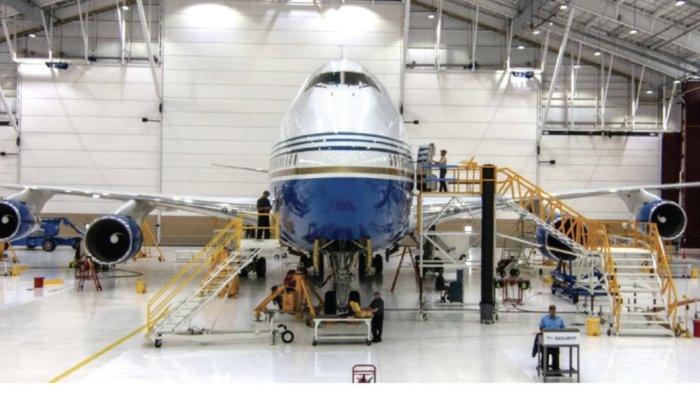In what stands as approximately the 40th airworthiness directive (AD) affecting the Airbus A380, the EASA mandated inspections and possibly repairs on the double-decker’s wing rib feet last Friday after operators found cracks on several aircraft. The AD applies to 20 of the 68 A380s in service. The EASA directive concerns “structural integrity,” but Airbus insists the cracks “do not affect the safe operation of the aircraft.”
The AD, effective on January 24, divides the affected A380s into two categories. Aircraft with 1,800 cycles or more must be inspected within four days or 14 cycles, whichever applies first. Aircraft that have logged between 1,300 and 1,799 cycles must be inspected within six weeks or 84 cycles.
A “detailed visual inspection” should be performed on “certain” rib feet. Airbus says it has devised repairs, and if the maintenance technician discovers a crack, the next step is to contact Airbus “for approved instructions.” The AD refers to the manufacturer’s January 20 “all operator telex.”
The AD describes “interim action,” but the EASA might mandate further action as the process progresses.
The problem first became apparent when operators discovered cracks originating from the rib-to-skin attachment holes. Subsequent inspections on other A380s revealed further cracks. Some of them originated from the forward and aft edges of the vertical web of the rib feet. Authorities deemed the latter crack type “more significant.” It can develop after a period of time in service, the EASA said. Airbus said the cracks occurred on non-critical components.
A Singapore Airlines spokesman said that the airline will inspect 10 of its A380s—six between January 24 and 27, and four over the course of the following six weeks. It estimates the inspections will last between one and two days per aircraft. “Thanks to our fleet of 15 A380s, flight [schedules] will not be disturbed,” the spokesman said.
One Air France A380 must undergo inspection, and the airline is talking to Airbus about the possibility of having the inspection coincide with a scheduled maintenance visit.
Given the serial numbers of the affected aircraft, Emirates—which did not answer AIN's request for comment—will feel at least some impact. Lufthansa and Qantas spokespeople reported no effect to their respective A380 fleets.







